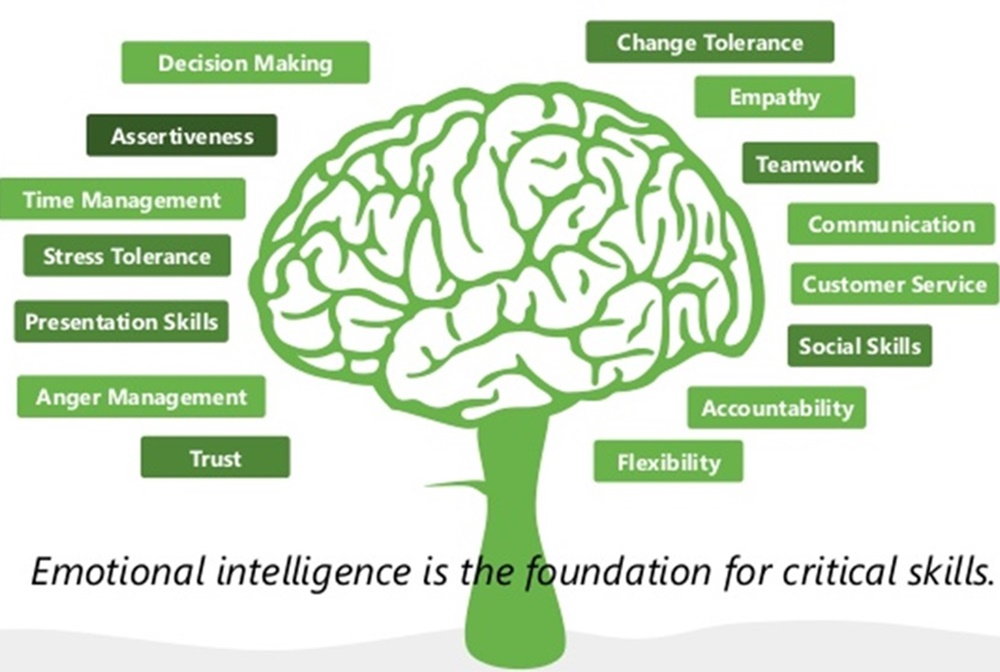
12 mart. Improving emotional intelligence
Author: Dr. Camelia Căpuşan, FLP Manager
Step 1: Evaluation
In order to improve emotional intelligence, you must first know what your current level is. You can find out by answering the 25 questions in the Friedmann Scale.
Step 2: Self-education
In the absence of a coach or a mentor, we must educate ourselves. Self-education, regarding emotions, involves:
– Continuous self-evaluation of one’s behavior and awareness of responsibility for the results we have. Ask yourself: „How did I get into this situation?”
– Become as much aware of what we do, we say, the way we act and react. We always take responsibility.
– As often as possible we need to identify in which situations we apply behavior patterns, we repeat the mistakes without learning from them, how we react to certain situations and how we can improve the way we behave, so that the results change for the better.
Step 3: Change behavior
It only takes a moment to decide whether we want to control an emotion or let it control us.
Think of people you consider emotionally intelligent, that is, mature. How would this mature person act and resolve the situation in which you are? What reactions would the behavior of this mature person trigger?
Remember! With each word and action we can strengthen or weaken the relations with those around us. Do your actions and words strengthen relationships or weaken them?
Ways you can develop your emotional intelligence
Be careful!
The first step in increasing emotional intelligence is understanding the emotions through their awareness. We are often told to hide our feelings, but in order to develop our emotional intelligence, they must be defined. Start by observing what you are feeling one day. Stop and allow yourself to feel what you want.
Adapt your emotions!
As you become more aware of your emotions, start looking for patterns and factors that trigger them. Remind yourself of a situation where emotions overwhelmed you and think about what you would have done differently if you had remained calm. Once you start to get to know yourself emotionally, try not to overreact.
Forgive!
Forgiveness is often misinterpreted. The reality is that forgiveness helps you take over the emotional control over your feelings and release the control that someone else has over you.
Forgiveness is a gift that you make yourself. Forgiveness is the acknowledgment that the action took place and made you feel a certain way. There is nothing that can be changed about the action that has already taken place. You can choose to live in the past or learn from it, but the healthy way is to move on, to move on.
Empathize!
Understanding your feelings is only half the equation. The other half is represented by the understanding of the feelings of others. Empathy connects you with another person through common feelings.
By our nature we are selfish beings. And this works perfectly until you have to interact with another selfish person. Through common feelings we are able to discover our authentic selves. Our ability to empathize with people gives us the courage to live outside our bubble.
Why is forgiveness important in the process of emotional healing?
Emotions affect our immune system for better and for worse. Happiness heals like a medicine, and bitterness kills like a disease. Bitterness is like an acid, which dissolves its container.
Giving up bitterness can dramatically improve the root causes of many physical ailments. In some situations it has been shown to be a better healing method than surgical or medicinal.
„Forgiveness is a process, not a transaction.” Just as we have a habit of always returning to past offenses, we must form our new habit of always returning to the decision to forgive. If we want to begin the process of liberation and renunciation of bitterness, we can go through several successive pardons of forgiveness.
Emotional intelligence is, in fact, wisdom! Is the acquisition of wisdom just the apportionment of old age?

